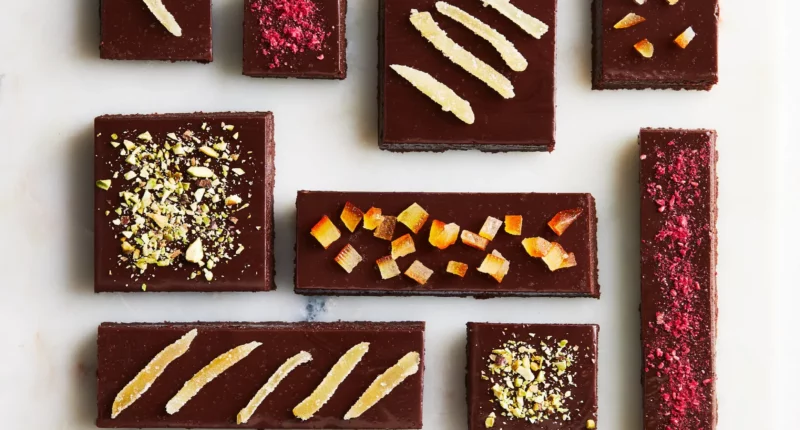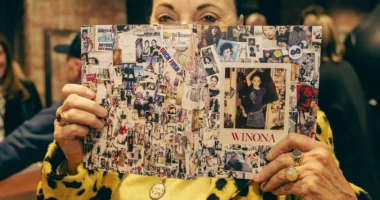It’s been a hard year, and finding small joys feels particularly important right now, around the holidays. When I considered which treat could deliver that happiness in this season (aside from cookies, of course), I remembered the first pastry I learned as a restaurant cook. In the basement corner of a little French bistro, we turned out chocolate tarts, the elegant little black dress of desserts.
Recipe: Big Chocolate Tart
Fashioned in the style of the renowned chef Joël Robuchon’s recipe, the filling was as creamy as pudding and as silky and softly set as crème brûlée. With a buttery, crisp crust, the tart made the diners feel special and the cooks feel empowered by their baking prowess.
This big chocolate tart does the same and requires no professional training to guarantee stunning results.
In a significant departure from most tarts, it’s made in a rectangular cake pan. The speed bump edges of a fluted tart pan, and even the smooth lines of a tart ring, necessitate stressful dough rolling, fussy parbaking and risky crust unmolding. And even the biggest tart pan doesn’t make enough wedges to feed a crowd.
In this take on a tart, the crumbs of a cocoa dough are simply pressed across the bottom of the pan. The filling, usually a blend of cream, milk, chocolate and eggs, here swaps fresh milk for sweetened condensed milk to ensure that the custard doesn’t break, since it covers the football field expanse of a cake pan.

I first learned this canned milk trick while working on a cookbook with the pastry chef Pichet Ong. The sugar in condensed milk has been inverted, meaning the bonds between glucose and fructose molecules have been broken. And, as Mr. Ong explained, that altered state ensures “a velvety smooth texture because the sugar has been stabilized and won’t crystallize once it sets.” Here, it also has the added benefit of being carried by dairy.
“It’s extra milky and helps offset the bitterness of the cocoa,” Mr. Ong said. “It gives it a sweetness that’s not cloying and a deeper sweetness than granulated.”
Along with cream and a generous pinch of salt, it accentuates the chocolate and makes this tart delicious on its own. But it can also be a blank canvas: The tops of the individual portions can receive the crunch of nuts or flaky salt, the chew of candied orange peel or ginger, or the pop of tangy freeze-dried berries.
The portions can also be sliced in any shape or size you want. When cutting the tart, I was inspired by the artist Piet Mondrian’s later abstract works, which showcase the beauty of squares and rectangles, and by their connection to his early figurative landscape paintings.
At their core, both styles of painting are fundamentally compositions. I’m not, by any stretch, comparing dessert to fine art, but the practice of changing forms around a foundational concept applies here. Even though this tart isn’t built in a tart pan, it remains crust and filling, and the pleasure we all need and deserve now.






